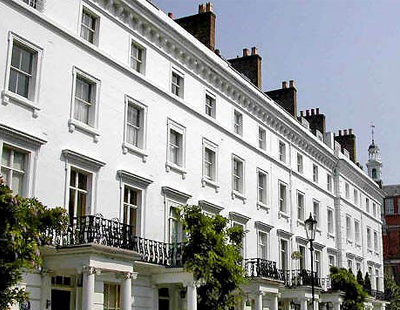There’s a warning today that office-to-resi conversions - popular with landlords in recent years - are at an increased risk of serious overheating due to poor design.
Insurance giant Zurich says the danger is greatest in tiny, self-contained bedsits and studio type flats that could potentially become uninhabitable during increasingly hot summers.
Furthermore, the location of many offices in heavily built-up, concrete areas leaves them more exposed to the ‘urban heat island’ effect, where temperatures are hotter than outlying areas, and flash floods from heavy downpours.
As well as risks posed by climate change, Zurich sees a high volume of escape-of-water claims from office-to-residential conversions, with one of most frequent causes being the failure of plumbing systems not originally designed to service hundreds of domestic kitchens and bathrooms.
Paul Redington, Zurich’s major loss property claims manager, says: “While we recognise the need for more affordable housing, we have concerns about the standard of some homes built under permitted development, where we already see a disproportionate volume of claims.
“There is a danger that the glut of shops and offices left empty by the pandemic are turned into cheap, substandard housing that lack resilience to extreme weather.
“In particular, overheating in new and existing homes is emerging as a potentially deadly risk. Poor plumbing is also a serious issue that causes major disruption for residents. In the drive to revitalise our town centres, we must ensure that we do not create swathes of homes that are unfit for living and future climate conditions.”
The Royal Institution of Chartered Surveyors is also concerned and in a joint statement issued with Zurich, RICS’ spokesman Tony Mulhall adds: “The post-Covid city may need to quickly adapt to new modes of behaviour which could see many building types adapted for purposes not originally intended.
“Following government’s expansion of Permitted Development Rights a generation of hermetically sealed commercial buildings may now fall into this category to be re-purposed for housing, needing to satisfy a completely different set of standards. Heating, natural ventilation and direct access to outdoor space - by which we mean all flats being provided with balconies - to name just a few of these requirements.
“Although energy poverty, where residents cannot afford to heat their flats throughout the winter is a recognised problem, the other increasing concern is residential buildings which, due to increased natural temperatures, are tending to overheat. Some buildings when reconfigured as apartments with a single aspect may not allow for through ventilation as part of a natural cooling strategy.”
Zurich says it wants government to think ahead to look at ways to climate-proof buildings. Building regulations need to keep up with changes in the planning system to avoid fixing oversights further down the line.
It also wants developers to be required to improve shading by building in features, such as improved glazing, draught proofing, installing shutters on windows, use of reflective surfaces and ceiling fans.
To combat escape of water in converted offices, Zurich says developers should install leak detection and suppression devices. If fitted during the conversion, costs can be relatively modest and avoid huge disruption for residents.












%20-%20IMAGE%20Client%20Accounting%20%E2%80%93%20what%20are%20your%20options.jpg)
.png)








Join the conversation
Be the first to comment (please use the comment box below)
Please login to comment